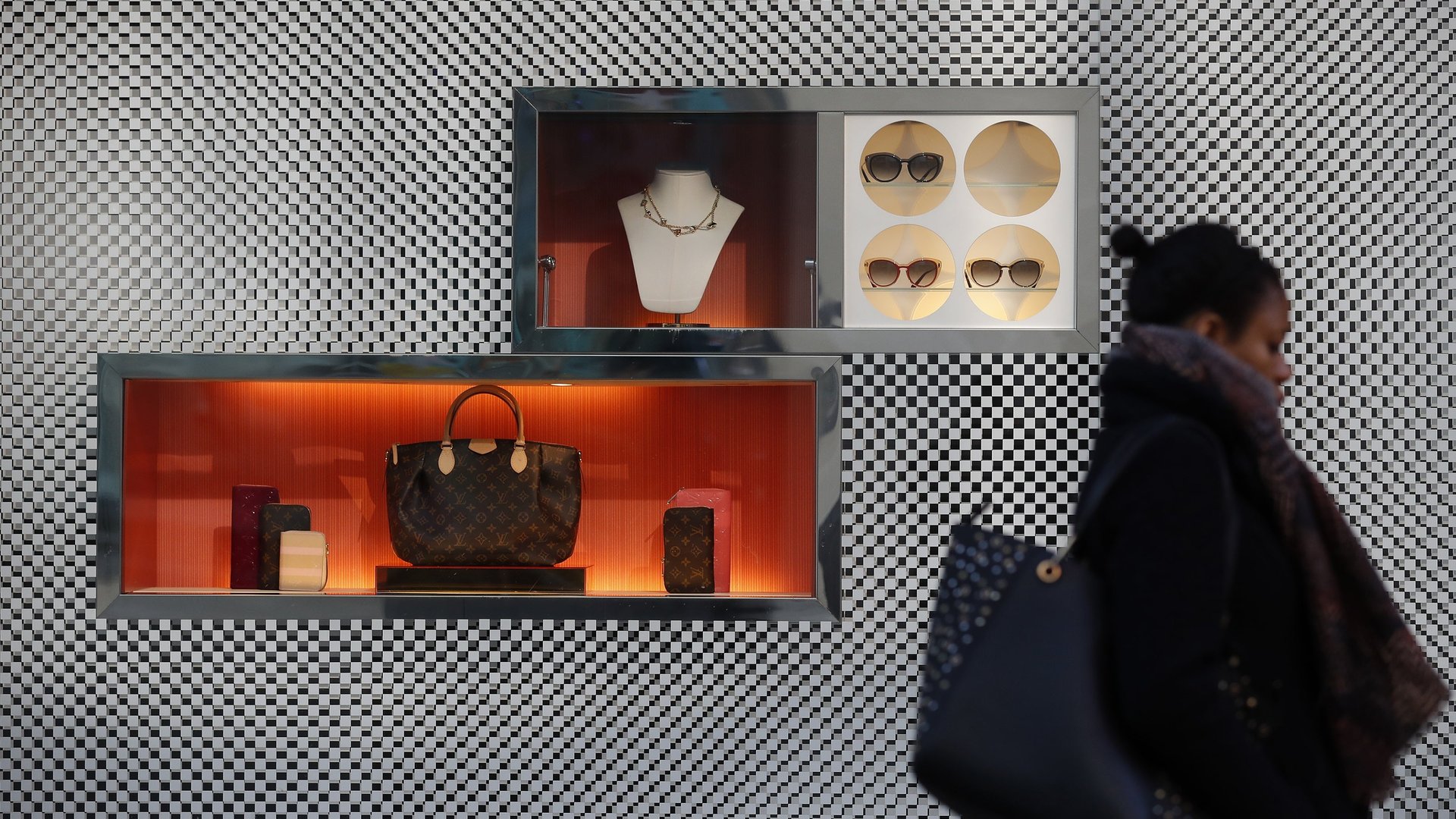The Brexit vote is trouble for Europe’s luxury goods industry
Britain’s vote to exit the European Union has sent financial markets reeling, and could have wide-ranging consequences for the global economy. What might those be? Nobody quite knows for sure, and that’s a problem for Europe’s large luxury goods and fashion industries.


Britain’s vote to exit the European Union has sent financial markets reeling, and could have wide-ranging consequences for the global economy. What might those be? Nobody quite knows for sure, and that’s a problem for Europe’s large luxury goods and fashion industries.
Britain’s move is unprecedented, which translates to little certainty about what will happen. But the outcome may be a very real erosion of consumer confidence. If shoppers don’t know what to expect in the months ahead, they may skip expensive trips and purchases, which could spell trouble for companies selling high-end goods.
Luca Solca, head of luxury goods at Exane BNP Paribas, succinctly summed up how events could unfold in an email:
- Uncertainty spikes / Currencies adjust / Asset markets decline;
- Both consumers and corporate confidence is damaged;
- Consumers postpone expenditure / Corporates postpone investment;
- Global GDP growth corrects down / Higher risk of recession
The possible depressing effect on global GDP growth “would be a negative for all companies in the sector,” Solca says.
One month ago, consulting firm Bain & Company predicted just 1% growth in the luxury goods industry this year. Europe in particular is in a shaky position because it’s particularly dependent on foreign tourists for the bulk of its luxury-goods purchases (pdf, p. 17). European brands are already under pressure from the recent terrorist attacks in Paris and Brussels. They’ve also seen fewer of the high-rolling Chinese tourists that fuel much of their sales since new visa rules made it a hassle for many to travel to Europe’s borderless Schengen zone. The instability caused by Brexit doesn’t help.
“The biggest impact of Brexit is increased volatility in the market that is already volatile which probably means a decrease of consumer sentiment,” Mario Ortelli, senior analyst at investment research firm Sanford Bernstein, told Business of Fashion. “This is not good for the luxury goods companies and if we look at the trading of the shares of the luxury goods companies, probably this Brexit decision will increase the pressure of the market going down.”
The currency effects of Brexit could be one upside, though, according to Solca. As the euro and pound devalue, European and British companies would see their goods become cheaper to foreign shoppers, creating an incentive to buy. In a recent luxury report (pdf), Bain called Europe “the world’s largest in-season outlet” because of how the weak euro has attracted Chinese and US tourists.
On the other hand, those devaluations would make manufacturing more costly for British and European brands that source their goods in Asia. Luxury labels still do much of their production in Europe, but it’s become more common for brands, including Prada and Burberry, to produce in China, too. (Mass-market labels face a tougher outlook, and currency swings can make a difference in earnings. H&M recently took a hit in its profits, in part because of the strong US dollar, which raised its costs. Brexit may cause the dollar to surge.)
The biggest threat, though, is to Britain’s fashion industry. Clothes could become more expensive for British shoppers, for one. British fashion labels are also closely tied to the European Union. They routinely find talent from Europe, and high-end labels still source and produce many of their goods in countries such as Italy and Portugal. The new trade barriers that will arise from Brexit would make business for these companies slower and more expensive, which explains why British designers overwhelmingly preferred to remain in the EU.